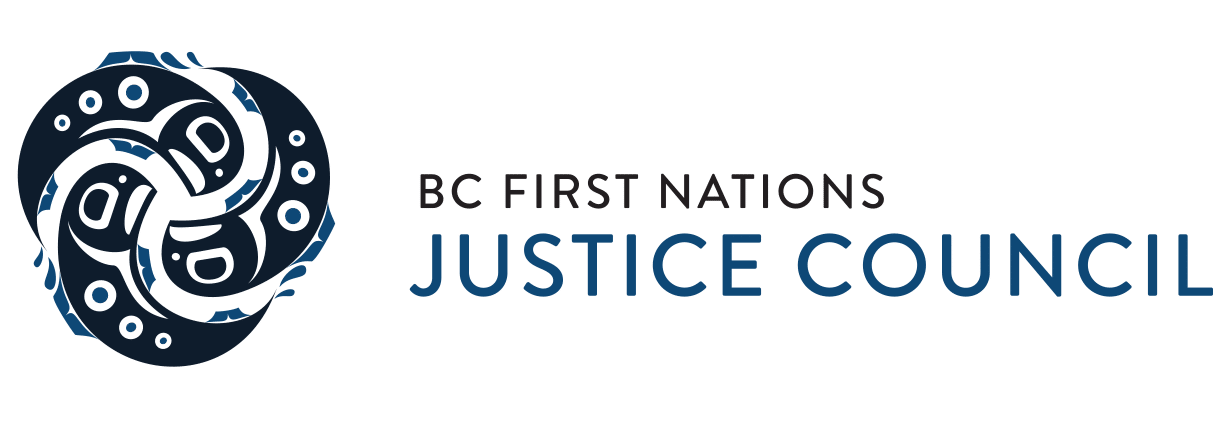What is an Indigenous Justice Centre?
BCFNJC’s Indigenous Justice Centres are spaces in communities where anyone who identifies as Indigenous and does not already qualify for legal aid can get help with criminal and child protection cases. They also provide wraparound supports, connecting people to housing, diversion, safety, treatment, and restorative justice programs that can help an individual to address the factors that have led to Ministry or police involvement in their lives.
IJCs can also be a space in the community for broader conversations about how to transform justice, whether that is a new approach to conflict, or sovereignty over law, community can come together to decide on local priorities and directions.
Smaller and northern communities might need more innovative services to connect people with legal and wraparound supports regardless of geography, winter conditions or the lack of internet infrastructure. In these cases, an IJC might be a satellite of a larger IJC, or a roving IJC that travels to remote communities. BCFNJC wants to work with Nations to develop options that work.
In the meantime, Indigenous people anywhere in BC can already connect with a lawyer through the Virtual IJC by calling 1-866-786-0081 – 8:30 a.m. to 4:30 p.m. Monday through Friday.
Selection process for hosting an IJC
In November 2022, the province announced new funding for 10 IJCs, in addition to the prior commitment to fund 5 IJCs, bringing the total to 5 Regional and 10 smaller IJCs across the province. Four are already open (Merritt, Chilliwack, Prince Rupert and Prince George) and the five Regional IJCs are on track to open in November 2023 (Kelowna, Surrey, Vancouver, Victoria and Nanaimo), leaving 6 additional IJCs to open in 2024. The VIJC is funded separately.
The First Nations Summit, Union of BC Indian Chiefs and BC Assembly of First Nations, from whom BCFNJC gets its mandate to implement the First Nations Justice Strategy, passed a resolution that the selection of the next IJC sites will be based on business cases developed collaboratively by interested First Nations and the BCFNJC. This sets out the template and timeline for that process.
Selection timeline for hosting an IJC
July 2023
- Invitation to express interest in hosting an IJC – application information available on website
- BCFNJC completes their own data analysis of population, demographics, language groups, legal aid demands, court catchments etc to determine strong community candidates
August – November 2023
- Expressions of interest accepted from communities by BCFNJC (process to be defined and updated here)
- First Nations and BCFNJC work collaboratively to develop business cases
December 15 2023
- Deadline for completed Business Case from interested First Nations 2024
January 2024
- BCFNJC reviews all business cases
February 2024
- BCFNJC Council makes formal decision on the locations of the next IJCs
- BCFNJC announces the next six IJC locations
March – June 2024
- Site planning, location, hiring etc begins for the next six IJC locations
July – November 2024
- Staggered opening of the six new IJCs
Business case components for proposed IJC
The business case for each proposed IJC will include two components:
- the First Nation’s interest and rational for hosting an IJC, as well as the range of existing and planned services, coordination with other Nations and service providers and plans for both legal services and the revitalization of pre-contact legal orders (if existing).
- BCFNJC’s research, data collection and analysis into factors that may be relevant to the site selection such as:
- Indigenous language groups
- Population trends
- Demographics
- Court catchments
- Legal Aid demand in criminal, child protection and family law
- Frequency of Gladue Report requests
A fillable template for the business case will be added to this webpage later this year. The template highlights the common questions that will help the BC First Nations Justice Council decide which
locations are the best fit.
A First Nation can express interest in hosting an IJC and provide any related information. A business case does not have to be complete before expressing interest. BCFNJC will work with the First Nation to develop the business case. Much of the research can be completed by the BCFNJC team.
Business case template for proposed IJC
A fillable template will be posted here later this year. In the meantime, the key questions are included
below to allow First Nations to being planning.
- First Nation:
- Number of reserves:
- Tribal Council (if any):
- Surrounding Nations that may be served through the IJC:
- Language group/local dialects:
- First Nation’s justice needs and services:
- Community strengths and capacity for delivering justice programming and services:
- Efforts / Plans to stand up independent legal orders (ex. child welfare, resource management, land codes etc.):
- Known justice services of neighbouring/surrounding First Nations (for the purpose of coordination) (if applicable):
- Any partnerships with Metis service providers, non-Indigenous service providers:
- Areas of community members’ legal needs:
- Nearest Courthouse:
- Nearest Indigenous Court (if any):
- Indigenous Community Justice and Restorative Justice programs in the region:
- Non-Indigenous justice programs in the region:
- Availability of lawyers in the region: (criminal, child protection, family) (if known):
- Justice related services in the region (legal aid office, corrections facilities, legal training programs, etc.):
- Additional information we should know about justice in your community:
What if you aren’t selected?
Any business cases that are not selected for 2023 IJC expansion can be used by the First Nation to pursue alternative funding. BCFNJC may also use them, with the consent of the First Nation, to make the case for more Indigenous Justice Centres.
Even if a community is not selected to house a BCFNJC Indigenous Justice Centre, there are other options for justice service supports. BCFNJC can work with a First Nations to set up a kiosk to provide dedicated access to lawyers in the Virtual IJC, or to make it easier for community members to participate in court hearings.
